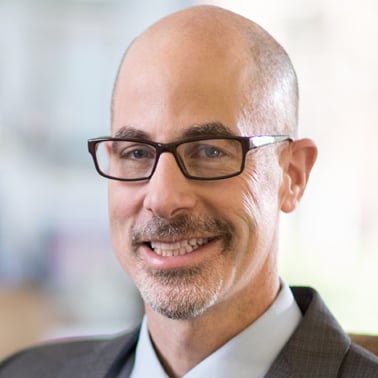In 2009, Paul O'Neill gave a speech to the Tennessee Hospital Association, titled, "The Irreducible Components of Leadership Needed to Produce Continuous Learning and Improvement." Among other topics, Paul talked about the worldwide effort undertaken within Alcoa (while he was CEO) to evaluate the quarterly and year-end closing of the books, root out wasteful parts of the process, and trim the time to close the books from 11 days to the perfect goal of 3 days.
We excerpt this part of Paul's talk here because it's an inspiring and informative example of how a goal of perfect performance energizes the workforce -- and the workers who own the related processes -- and how such a "3-day close" achievement allows for resource maximization and higher levels of value creation.
What would your organization's "3-day close" equivalent be? What benefits would you expect to accrue by setting such a goal and executing a plan to achieve your goal, and how would you expect people in your organization to engage?
Quality is the Job of Everyone in an Organization
If you are really going to be on a quality quest, it has to be about everyone in the institution. It cannot just be about the people in the quality department. The people in the quality department cannot produce quality for the organization. This does not mean that they don’t have a big responsibility, but they can’t do it. In the same way, infection control committees cannot fix infections. They have an important role to play but they cannot make it happen for the whole institution.
So in a quest to make sure that everyone in the institution grasped these ideas, in about 1991 I called in the comptroller at Alcoa. I asked him, “Ernie, right now, in this worldwide enterprise, we are closing our books in about 11 days at the end of each quarter and reporting our results to Wall Street. I would like to know, if we had a perfect process, with no repair work, no transpositions of numbers, no foul-ups from computer programs that don’t integrate very well with each other from computer programs which don’t interface very well with each other across 350 locations -- if instead of repair work all of our time was high-value touch time and we were producing value in every minute of every day -- how long would it take?”
About three weeks later, he came back and said, “I have figured out the answer to your question. Right now we are closing the books in 11 days. If we did it perfectly we could do it in three days.” I said “You know what Ernie, that’s our new goal.” And he said “That’s not what I meant. We can’t really do that. That’s just the answer to your question.” So I said, “Hey Ernie, we are trying to be perfect in everything else we do, including workplace safety and manufacturing. So the finance function needs to demonstrate to the rest of the organization what excellence really looks like.” It took us a year to get there.
Leaders Create the Opportunities and Conditions for the Workforce to Pursue Perfect
The leadership function is really important. I had to say to them that I don’t care how much it costs to make this perfect. I don’t care because I am so confident the value is there. And so here is your permission: you can examine all of the things we are sucking up from around the world and decide whether the stuff that has evolved over time is really critical to the financial characterization of our organization and meeting our obligations to the Securities and Exchange Commission. So, you have the freedom to redefine what it is we do. You have the resources to rewrite the computer programs so that they are friendly to human beings instead of only people who are nerds and delight in complexity. You can make it so that it works for the people who have to do the process of financial roll-up. And, if you need some outside help, go and get it. So the leader needs to provide the running room for the people to work toward the theoretical limit.
And so in a year, we got to the point where we could close our books in three days, full stop. And today, if you look at the financial earnings announcements, Alcoa remains today and probably always will be the first major corporation to roll up its earnings and report them, good and bad. Because the process works. At Alcoa at that time we had more than 1,300 people in the finance function. And by going from 11 days to three days, we freed up eight days a quarter from more than 1,300 of the most highly trained analytic people in the organization. Not so that we could fire them! But so that they could use their brainpower to help us better understand how to improve everything else we were doing.
This is not about firing people. It’s about creating the opportunity for applying resources in a way that creates ever-greater value.
This Approach Was Effective at the U.S. Treasury
So when I went to the Treasury Department I asked them how long it took us to close the books after the end of the fiscal year, September 30th? They said they usually got it done in March. I said “why bother? Who cares about numbers that come out five months after the fact? I know an organization that is more complicated than the Treasury where they close the books in three days and that should be our goal for the Treasury. We should be at least as good at Alcoa.” And so they hit me with the list of excuses. We don’t have the money. We are already too busy. And then they hit me with a new one: government laws and regulations won’t permit it, smart guy. So I said, “I will tell you what, if you can show me a rule or regulation or law that prohibits us from doing this I will go and get it changed.” You know, again, it was taking away the excuses and saying give it to me. If you tell me there are barriers that need to be rolled away I will roll over the barriers. There weren’t any. It was just an excuse. No one had examined “How [can] we do this. We will do it.” And so in 13 months at the Treasury, we learned how to close the books in three days. If you want to see this story it’s on the Treasury website, they are so proud of it. And it’s because we got the Alcoa comptroller to come pro bono, we didn’t pay him a cent, and helped coach the people at Treasury to do it.
Now, why do I tell you these stories? I know there are a lot of health and medical care organizations that do not close their books in three days. But they could if the leadership decided that this is of value and a way to demonstrate to our organization that every part of our institution is on the same wavelength and we are all about excellence and we won’t live in siloes and we won’t embrace excuses and we will be excellent in everything we do.
I hope I have challenged you a little bit. Maybe inspired you a little bit, about the potential for what you as leaders in health and medical care can do.


Submit a comment